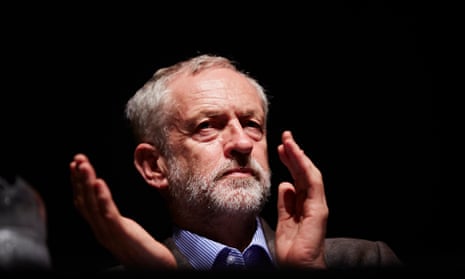The seeds for the phenomenon of the rise and rise of Jeremy Corbyn were sown when Labour either voiced acceptance of George Osborne’s welfare cuts or abstained in the parliamentary vote.
This really did raise the question: what is the Labour party for? One may disagree with Corbyn over his stance on Nato and one or two – or possibly seven – economic issues, not least his proposals for the Bank of England, which would demand serious quantitative analysis. But he certainly struck a chord with his full-frontal attack on austerity. Despite all the bad-mouthing of him, he has indeed forced other leadership contenders to stop apologising for a deficit that was induced by the financial crisis and had nothing to do with spending plans that were supported by George Osborne at the time.
Students of the cynical, shifty but politically adept (so far) chancellor know that his approach has been to acquiesce, in opposition, in what the Labour government did, then to try to move the so-called “centre ground” to the right when he himself arrived in government.
The northern powerhouse and manifesto promises about electrification? Forget it! The casual way in which he reneged within days on the Conservative manifesto “commitment” to impose a ceiling on old people’s bills in care homes was outrageous. The attack on the poor in his budget – on which the independent Institute for Fiscal Studies provided chapter and verse – was so brazen that someone had to come out fighting, and that someone was Jeremy Corbyn.
Now, I fear much of Labour’s post-election agonising missed the main point. In a recent interview with my former colleague Mary Riddell, Ed Balls stated bluntly: “People didn’t want Ed [Miliband] as prime minister, and they didn’t want me. I’m not going to start making excuses or shifting responsibility.”
Well, Balls is a big man, as the present chancellor acknowledges. I have been struck since the election by the number of people on both sides of the political divide who regret his departure. Sadly, there is less evidence of this in the case of Ed Miliband.
If a reluctance to elect Miliband was the principal factor behind Labour’s defeat, the problem for Balls was that, to too many electors, Labour also came across as a party of “cuts” – albeit at a slower pace. I myself lost count of the number of intelligent people to whom I had to explain that Labour was not aiming at a surplus on current and capital expenditure combined.
Until Corbyn came along, Labour was like a rabbit in the headlights on the subject of austerity. It was good to hear Yvette Cooper declare recently: “I won’t apologise for Labour’s investment in schools and hospitals – it wasn’t too many nurses or teachers that caused the global financial crisis. I’ll fight the 40% cuts George Osborne has proposed for our public services – it’s an ideological approach that goes way beyond anything needed to bring the deficit down.”
There are two distinct aspects of the controversy about austerity and budget deficits. One is whether austerity was needed at all. The other is what the balance should be when normality is restored to the economy. For the fact of the matter is that Osborne wants to erode the public services and do great harm to the poor in order to finance tax cuts for the better off.
I fear the rot set in in 1988, when Nigel Lawson reduced the top rate of income tax from 60% to 40%. This – except when the top rate was raised to 50% by Alistair Darling in the face of the financial crisis – became the norm, and affected everything else.
All it needed was for Osborne to embark on his messianic assault on welfare. I met an experienced benefits adviser the other day, who said succinctly: “You don’t solve poor people’s problems by making them poorer or beating them with a stick.”
But the assault is not just on the poor: it is on public services generally. And when Osborne talks about devolution, he really means devolution of blame. The blame for the cuts will fall increasingly on the local authorities (including elected mayors), hospitals, museums and others in the public weal who will be in the front line, administering them.
It is the duty of an effective opposition to oppose such unjustified horrors, not acquiesce in them. Whatever the outcome of the Labour leadership election, Corbyn is to be congratulated for stirring things up.
Meanwhile, as regards Tony Blair, I am reminded of Clement Attlee’s rebuff to the troublesome Professor Laski: “A period of silence on your part would be welcome.” But Gordon Brown is right to remind people that it is no good being stuck as a party of protest.
Corbyn has been good at analysing many of the ills of modern society – ills that are aggravated by Osborne’s plans. But there is a difference between attacking unnecessary cuts and making spending commitments that can easily be ridiculed by the official machine.
Among the unnecessary cuts are those to public sector investment, where projects such as rail electrification have been scaled down. If there is one thing that really infuriates most economists, it is the idea that austerity is required in order not to cheat future generations. The truth is that it is cutting back on public sector investment, which can be financed at negligible interest rates, that actually penalises future generations.

